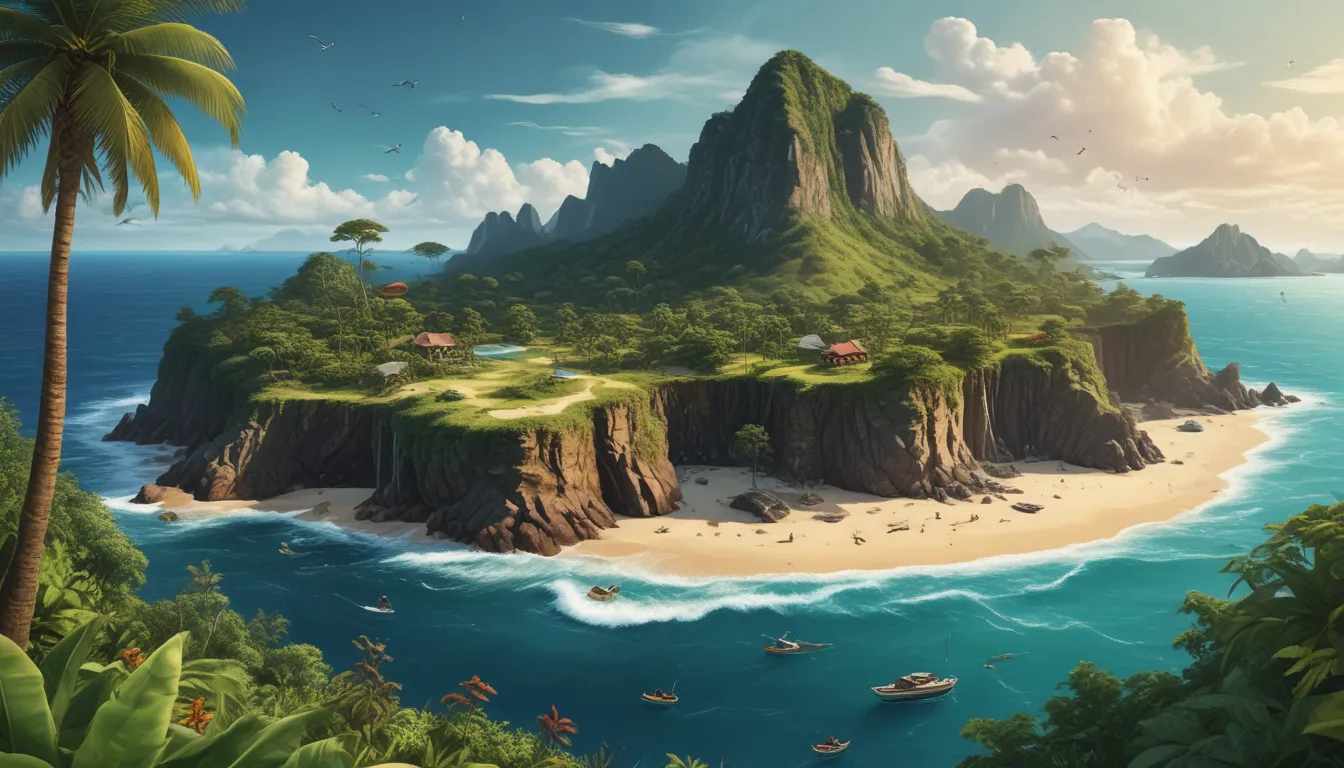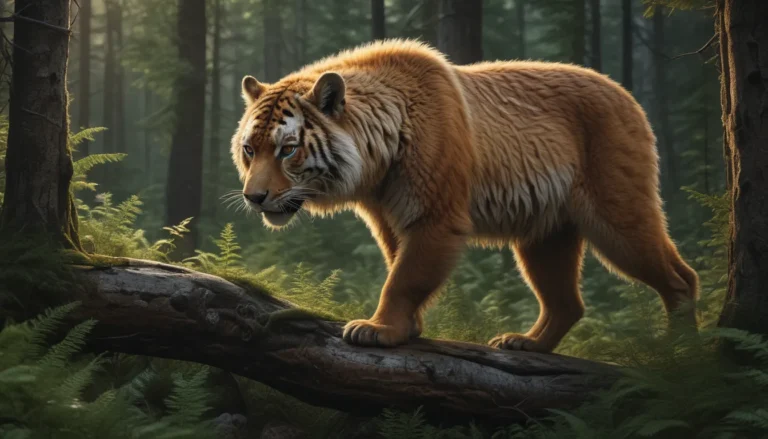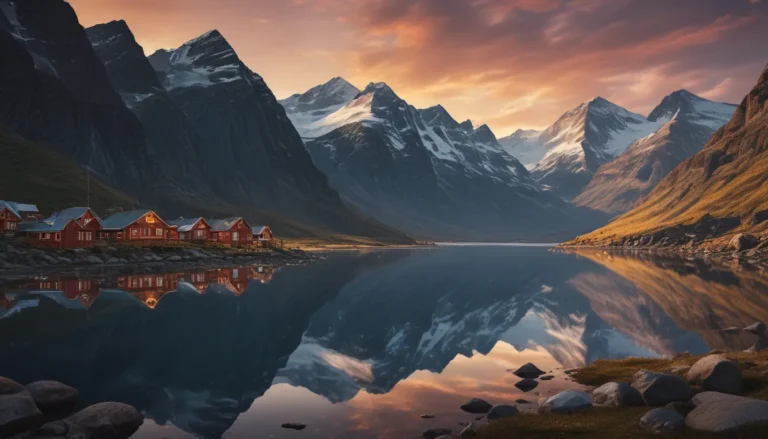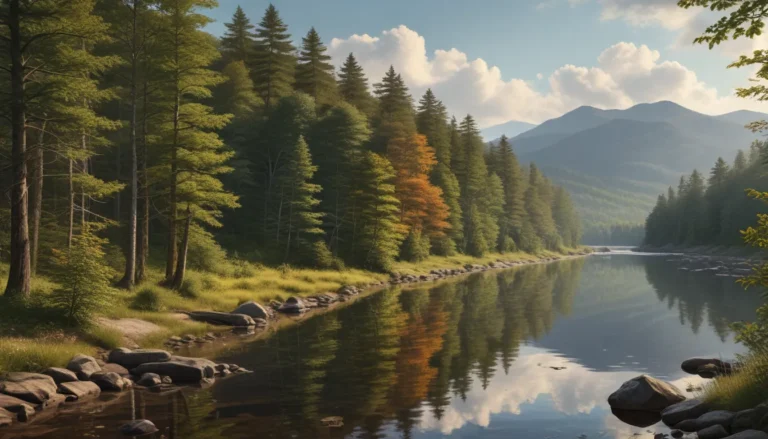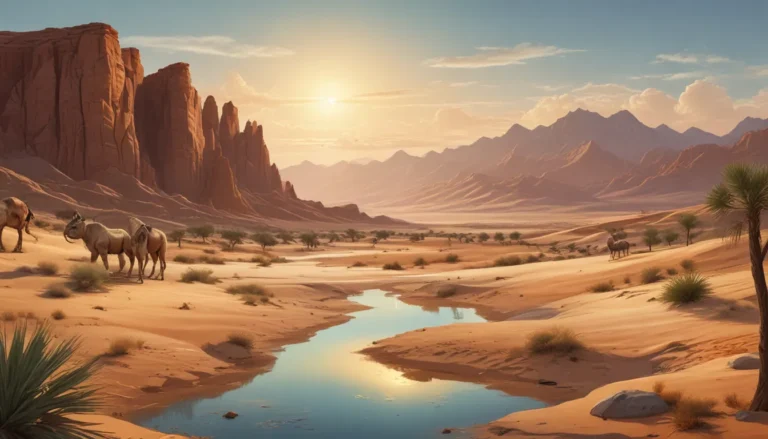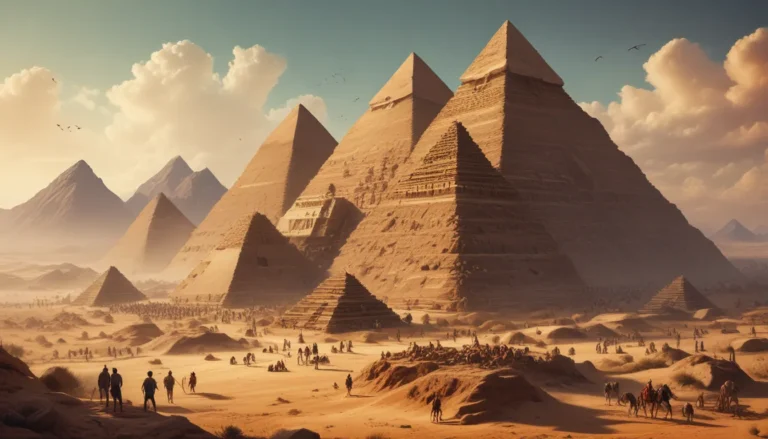A Note About Images: The images used in our articles are for illustration purposes only and may not exactly match the content. They are meant to engage readers, but the text should be relied upon for accurate information.
Island biogeography is a captivating field that unravels the mysteries of plant and animal distribution on islands, shedding light on the factors that shape their biodiversity. Islands, with their isolated ecosystems and unique environmental conditions, serve as natural laboratories for studying evolution, colonization, and extinction. From the iconic Galapagos Islands to the remote Pacific atolls, these distinct landmasses offer a glimpse into the intricate relationship between geography and biodiversity. In this article, we will delve into 10 astounding facts about island biogeography that will excite nature enthusiasts and science lovers alike. Join us on a journey into the fascinating world of island biogeography!
The Marvels of Island Biodiversity
- Islands serve as treasure troves of plants and animals, boasting unique environments that foster evolution and adaptation, leading to diverse ecosystems.
- Island biogeography provides insights into evolution, climate change, and the vital importance of preserving these exceptional habitats for future generations.
The Pioneers of Island Biogeography: MacArthur and Wilson
In 1967, Robert MacArthur and Edward O. Wilson introduced the groundbreaking theory of island biogeography. This theory elucidates how species richness on an island is influenced by two primary factors: island size and distance from the mainland. Their work revolutionized our understanding of biogeography and continues to shape the field to this day.
Unveiling the Island Effect
The phenomenon known as the island effect highlights the tendency for species on islands to evolve differently from their mainland counterparts. This can be observed through examples like the dwarf elephants of Sicily and the giant tortoises of the Galapagos Islands, showcasing the unique evolutionary paths taken by island species.
Islands: Nature’s Evolutionary Laboratories
Due to their isolation, islands offer unparalleled opportunities for studying evolution and speciation. Researchers can witness how species adapt and diverge in response to limited resources, novel environments, and unique ecological interactions, providing valuable insights into the mechanisms of evolution.
Diverse Island Classifications
Islands come in various forms, including oceanic islands formed by volcanic activity, continental islands once connected to a mainland, and coral reef islands created through the accumulation of coral reefs. Each type offers a distinct ecological landscape for studying biogeography.
Size Matters: The Relationship Between Island Size and Species Richness
According to the theory of island biogeography, larger islands tend to harbor greater species richness compared to smaller islands. The expansive land areas and diverse habitats available on larger islands provide opportunities for a wider array of species to thrive, enriching the island’s biodiversity.
Facing Extinctions and Invasions
Islands are susceptible to extinctions caused by habitat loss, introduced predators, and other human-induced factors. Conversely, they can also experience species invasions, where non-native species colonize and disrupt the native ecosystem, underscoring the delicate balance of island ecosystems.
Island Ecosystems as Climate Change Barometers
Studying the flora and fauna of islands can offer valuable insights into the impacts of climate change. Shifts in species distribution and population dynamics on islands provide crucial information about the effects of rising temperatures and changing weather patterns on terrestrial ecosystems.
Guardians of Island Biodiversity
With their high biodiversity and sensitivity to environmental changes, islands play a pivotal role in conservation efforts. Safeguarding and preserving island ecosystems is essential for protecting unique species and maintaining ecological equilibrium in these fragile habitats.
Embracing the Dynamic Nature of Island Biogeography
As our knowledge of ecology and evolution expands, so does the field of island biogeography. Researchers continue to uncover new perspectives on the processes and patterns that shape island ecosystems, contributing to our understanding of biodiversity and conservation.
Conclusion: Illuminating the Wonders of Island Biogeography
Island biogeography offers a captivating glimpse into the intricate dynamics of species distribution and evolution on islands. The ten remarkable facts presented in this article underscore the complex interplay between geography and biology, highlighting the fragility and resilience of island ecosystems. By embracing these principles, we can strive towards conservation efforts that protect the invaluable habitats found on islands.
FAQs: Answering Your Curiosities About Island Biogeography
Q: What is island biogeography?
A: Island biogeography is the study of the distribution and abundance of species on islands, exploring how factors such as island size, distance from the mainland, and species area relationships influence the diversity and ecological dynamics of island ecosystems.
Q: How do species colonize islands?
A: Species can colonize islands through natural dispersal, human-mediated introduction, or rafting events where organisms inadvertently float across bodies of water on debris.
Q: What are some unique adaptations of island species?
A: Island species often display unique adaptations due to the isolation and limited resources of their habitats, such as flightlessness in birds, dwarfism or gigantism in mammals, and reduced defenses in organisms lacking predators.
Q: What are the threats to island biodiversity?
A: Island biodiversity faces threats like habitat destruction, invasive species, climate change, and human disturbance, which can lead to the extinction of native species and disruptions in island ecosystems.
Q: How does island size and isolation affect species diversity?
A: Larger islands typically exhibit higher species diversity due to their capacity to support larger populations and diverse habitats. Meanwhile, more isolated islands may have lower colonization rates and higher extinction rates, resulting in lower species diversity.
Q: Are there successful conservation efforts for island ecosystems?
A: Yes, successful conservation initiatives have been implemented for island ecosystems, with examples like the Galapagos Islands in Ecuador and the Seychelles in the Indian Ocean employing protective measures to preserve their unique biodiversity.
Q: How does island biogeography enhance our understanding of evolution?
A: Island biogeography provides insights into speciation, adaptation, and natural selection, offering a window into how isolation and limited resources influence the evolutionary pathways of organisms.
Q: Can species vanish from islands?
A: Yes, species can disappear from islands due to reasons like habitat loss, invasive species introductions, or environmental changes, with the extinction of a species on an island often having a more significant impact on the ecosystem compared to the mainland.
Q: Are all islands equal in biodiversity?
A: No, islands vary in biodiversity based on geological history, climate, and geographical location, influencing the diversity and composition of species found on each island.
Q: How can individuals support island conservation?
A: Individuals can contribute to island conservation by backing local conservation organizations, practicing responsible tourism, and raising awareness about the importance of preserving these unique and delicate ecosystems.
Conclusion: Nurturing Your Passion for Island Biogeography
In a world teeming with natural wonders, island biogeography stands out as a realm of discovery and awe-inspiring revelations. From the unparalleled biodiversity of island ecosystems to the intricate web of relationships shaping these unique habitats, island biogeography invites us to explore the wonders of evolution and conservation. As we embark on this enlightening journey, let us celebrate the marvels of islands and the invaluable lessons they offer about the interconnectedness of life on Earth. Let your curiosity guide you as you delve into the captivating world of island biogeography, where each discovery unravels a new chapter in the timeless story of nature’s diversity and resilience.
